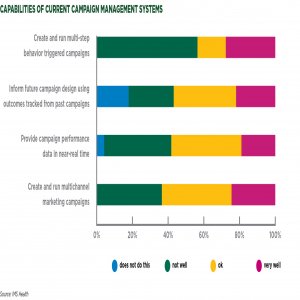Natural Sweetners Increasing Market Penetration

STORY INLINE POST
Q: How has stevia evolved in Mexico and the world?
A: Metco is a Mexican company created by entrepreneurs that had been working with stevia for over 20 years. We wanted to differentiate ourselves from the rest of the market by selling more than sugar packets. Taking into account the current Mexican health trends, we approached IPN to develop our first low calorie sweetener utilizing stevia. Six or seven years ago, we patented Svetia, a product that contains 100% stevia but also uses sugar cane as a carrier to add volume. All stevia-related products use different carriers such as maltodextrin, sugarcane, agave, or honey and so Svetia and similar products contain four calories per gram. Local regulations state that as long as a product contains less than four calories, it is considered to have zero calories. We were the first in the market to have the technology to produce such products at a time when they were relatively unknown by the general Mexican population. We worked hard to register the brand, patent the technology, and ensure that consumers could access these products. An initial problem was that stevia’s sweetness is different from that of sugarcane, which makes Mexicans wary of the taste. This has been a common problem for stevia worldwide, such as in England where people are more used to eating beet sugar. However, attitudes have changed due to consumer trends shifting towards healthier products, leading to a greater acceptance of stevia.
Q: What is the current market value for Svetia and other sugar substitutes?
A: According to Nielsen, the current value of the sugar substitute market is around US$39 million and has been growing at a steady rate of about 10-11% annually. This exclusively includes supermarkets, but we estimate that by including restaurants and other markets, this value could rise to over US$52 million. At this point, we account for 14% of the Mexican market for artificial sweeteners, making us the country’s leading producer of food sweeteners. Our success comes from our strong investment on R&D and the advantage held from being the first in the market. Due to increasing demand, we are continuously growing. We have a 3,000m2 manufacturing plant in Lerma but we will double its capacity this year. After that expansion, this plant will be able to distribute to all of Mexico and even export to Spain, the US, and Latin America. ProMéxico has also supported our growth in foreign markets by helping with travel expenses and international promotion. Several companies have even shown an interest in buying Metco, either through investment bankers or directly. However, we are not interested in selling at this point as this company was designed to last for generations. We have three different sales strategies, for retail, industrial and HORECAs (hotels, restaurants and cafeterias). Our industrial arm is mostly involved in food and beverage manufacturers for their low calorie or zero calorie products. Our commercial area mainly sells to all the major supermarkets with our Svetia, AzucarBC, Mascabado Original, and Diabesugar brands. We also sell to convenience stores like Oxxo and Circulo K and we reach end consumers through our presence at Starbucks, Sanborns, VIPS, and top restaurants in Mexico. We do not sell to local restaurants as these are reached mostly through complex direct store delivery systems or through wholesalers, who have yet to carry inventory of high intensity, quality sweeteners such as ours.
Q: What are the economic and health advantages of products manufactured with Svetia?
A: Stevia is more expensive than sugar but it has three distinct advantages. One of them is that it satisfies current consumer trends, as people are now searching for healthier food with lower caloric content. Svetia and our other brands meet this promise. The second advantage is that we consumers are looking for ingredients and additives that are made from a natural source or are natural. Our Svetia is made from stevia plant extract and contains no calories. The final advantage was actually imposed by the Mexican government, which wanted to bring down the calorie count of most foodstuffs to a maximum of 284 calories per kilogram. To do so, it established a sugar tax of one peso per liter for every product that surpassed this limit. Many drinks and foods that are manufactured with Svetia are able to comply with this law and avoid this tax.
Furthermore, products containing stevia have benefits for consumers’ health. In my opinion, our products are healthy alternatives for consumers and can help to reduce obesity if consumed as part of a healthy diet with moderate exercise. Svetia has zero calories but maintains the sweetness that most consumers crave. Most of the Mexican population has a sweet tooth, which makes these products convenient for them as they are a healthier alternative that does not sacrifice taste.
Q: Did the implementation of the tax on soft drinks affect your business?
A: The implementation of the sugar tax caused our sales, as well as the sales of similar products, to spike. We closely follow the imports of artificial sweeteners to Mexico and we have noticed an upward trend in terms of sales figures of these products since the tax was implemented. Sadly, other countries have already proved that sugar or fat taxes do not help to reduce obesity. Even so, companies find themselves forced to use sugar substitutes in order to be more cost efficient. The current sugar tax is applied even if products contain only one calorie per liter that comes from sugar. In response, we have been working with several companies for the development of products that contain stevia. This has not been easy as these products are often hard to sell to consumers who are used to specific flavors. Yet, we can provide a nearly indistinguishable taste with half the calories. Another problem is that most consumers still have a bad impression of sugar substitutes, although stevia, and our brand Svetia, has been helped by the fact that it comes from a natural source. The problem is that most consumers do not understand the distinction between stevia-based products and other sweeteners that have received negative press. To fix this, we need to educate people about the differences and help them realize how stevia can help to reduce obesity. Consumers with diabetes should still be careful since, while our product is very low in calories, it still contains a gram of sugar per packet, as a carrier, which might affect their glycemic index. Other high intensity sweeteners use maltodextrine and dextrose as carriers containing the same calorie count as sugar.
Q: How do you promote your product?
A: We have been working for a long time with several PR firms. We also participate in several promotional activities. For example, in January, we made a cake with 50% less sugar for the Three Kings celebrations that were sponsored by Mexico City’s government. We also organize seminars taught by biotechnology professionals and we visit schools and universities to promote our products and brands. One of our most creative projects is a series of minivans that travel around Guadalajara, Monterrey, and Mexico City to provide free coffee with Svetia. We are also talking with the Ministry of Health to explore ways to promote the health benefits of our products.
Q: Can Mexico become a major producer of stevia?
A: I believe that it is possible for Mexico to become a global producer of stevia, as both the production and demand for stevia are rising around the world. However, SAGARPA figures show that Mexico only had 38 hectares of stevia crops, mostly in Nayarit, Quintana Roo, Yucatan, and Chiapas, as opposed to 79 hectares in 2012. The amount of planted and harvested terrain dropped due to the fact that most Mexican farmers do not yet know how to cultivate stevia. At this point, Metco is importing all of the stevia it uses in the form of extracts, as importing the dry leaves is too expensive. According to my calculations, Mexico would need 3,000-4,000 hectares of stevia crops to meet our needs for the next five years. This is entirely possible as Campeche alone has over 11,000 hectares of sugar cane plantations, assuming the correct agroclimatic conditions and soils to plant stevia. There are many other parties interested in growing stevia and, while we are uninterested in farming it ourselves, we will be glad to promote this practice and even help with the procurement of the leaf.
Q: Are you collaborating with universities or other research centers? What certifications does Metco have?
A: We have been working with several universities since we were established, mainly with IPN’s Biotechnology Center. We are also working with an independent research laboratory in Puebla. Given the size of our business, we are very active in promoting zero calorie products and we are already looking for the next generation of sweeteners as we invest 3% of our sales in R&D. Several medical and nutritionist associations have endorsed us and our plants are certified by FSC 22000. By law, governmental institutions are not allowed to endorse consumer products but private foundations created by doctors can do so. We also often donate equipment to these hospitals or promote scientific exchanges. PROFECO has taken an uncompromising stance on packaging labels and is strictly revising all products made for human consumption. It is trying to ensure that labels truly reflect the contents of all products and it is even regulating products that should be monitored by COFEPRIS. However, we comply with all regulations, whether from COFEPRIS or PROFECO.
Q: What are your expansion plans for the future?
A: We want to achieve our goals across four fronts. The first is to increase the penetration of our products and the second is increasing our presence in Mexico and abroad. The third priority is to strengthen our brands and promote them using creative communications and public relations. Finally, we wish to continue our research and we are already looking for the next natural zero calorie sweetener.























